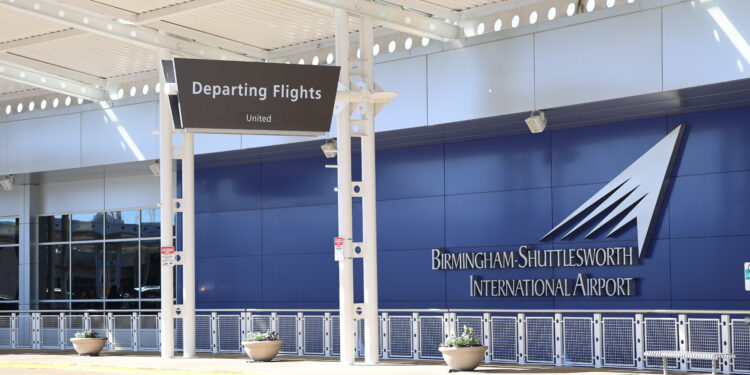From Washington to Birmingham, the ripple effects of the recent U.S. Government shutdown are still being felt, even as the event draws to a close.
After 43 days of federal funding gridlock, the government is open again. But for many students at Samford University, the national crisis was a very real disruption.
At the federal level, the shutdown brought agencies to a halt. Thousands of federal aviation employees, including air traffic controllers, TSA agents and safety inspectors either furloughed or worked without pay; airports across the country struggled to maintain normal operations. Staffing shortages led to widespread delays and cancellations, complicating travel for students, families and professionals alike.
The legislation that finally ended the shutdown reinstated pay for furloughed workers and extended funding through January for most agencies. It also restored support for the Supplemental Nutrition Assistance Program (SNAP), which is a lifeline for millions of families.
SNAP remains one of the country’s most relied-upon safety-net programs, supporting more than 40 million Americans each month. For many families, especially those with children, SNAP fills the gap between paychecks, seasonal work or unexpected expenses, ensuring consistent access to meals. When funding for the program is threatened, even briefly, the uncertainty can push households already on the edge into crisis, meaning that the stability of SNAP is essential for communities nationwide.
The end of the shutdown brought some relief, but its impact was felt throughout the nation and reached the Birmingham community. Each day that the government was closed, things became more uncertain for federal workers, travel plans, governmental services, and everyday Americans counting on assistance. The financial impact remains sizeable, and the lessons profound.
For third-year Cumberland School of Law student Mary Bishop, the shutdown had immediate consequences when her flight back to Birmingham from a trial advocacy competition in New York got cancelled.
“We ended up getting home. Praise the Lord that we ended up driving back, because we looked and the flight that we had been rebooked for had gotten delayed twice and then it got cancelled. The one for the next day had gotten canceled too,” Bishop said while discussing the options they had for how to get home from New York.
Though she and her teammates eventually made it home safely, Bishop’s experience illustrates how federal service disruptions like air traffic control staffing issues can cascade into student life, particularly on a campus where many students travel, compete or intern away from home.
Sophomore Scarlett Walker focused on another ripple effect: food insecurity. After learning that SNAP benefits were threatened, Walker mobilized support for local food banks.
“Food should be something that everybody has access to. No matter what you believe. I feel like we don’t even think about it on a daily basis,” said Walker.
Walker’s words serve as a reminder that behind Washington’s headline grabbing standoff are families and children who rely on federal help. In the greater Birmingham area, food pantries and service organizations saw anxiety grow as the shutdown stretched on.
Although the shutdown has ended for now, the pause in service brought to light how interconnected so many institutions are.
The shutdown also signals to the campus community that civic awareness matters. Students not studying political science or law may be led to think that federal funding debates do not affect them, but the stories of Bishop and Walker show otherwise. Whether in travel issues, community service or food access, the consequences reached into the daily lives of young adults.

Staff Reporter




